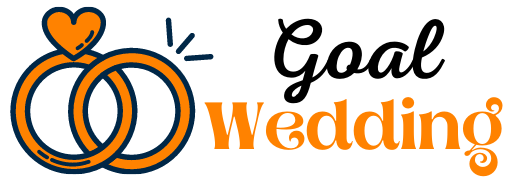The Skylar Mae Leaked Scandal: Unveiling the Truth
-
Table of Contents
- The Skylar Mae Leaked Scandal: Unveiling the Truth
- The Skylar Mae Leaked Scandal: What Happened?
- The Dark Side of the Digital Age
- Privacy in the Digital Era
- The Legal Implications
- Lessons Learned: Protecting Yourself Online
- Q&A
- 1. How can we prevent unauthorized leaks of private content?
- 2. What legal actions can be taken against those responsible for leaking private content?
- 3. How can we raise awareness about the importance of privacy and consent?
- 4. What steps can platforms take to enhance user privacy?
- 5. How can we support victims of online privacy violations?
- Conclusion
In recent months, the internet has been abuzz with discussions surrounding the alleged “Skylar Mae leaked” scandal. This controversy has captured the attention of millions, sparking debates about privacy, consent, and the consequences of our digital age. In this article, we will delve into the details of the Skylar Mae leaked scandal, explore its implications, and shed light on the broader issues it raises.
The Skylar Mae Leaked Scandal: What Happened?
The Skylar Mae leaked scandal revolves around the unauthorized release of private and intimate content involving Skylar Mae, a well-known public figure. The leaked material, which includes explicit images and videos, was disseminated across various online platforms without her consent.
Skylar Mae, a respected artist and activist, has been an influential figure in the entertainment industry for years. Her talent and dedication have earned her a loyal fan base and widespread recognition. However, the leaked scandal has not only tarnished her reputation but also highlighted the dark side of our interconnected world.
The Dark Side of the Digital Age
The Skylar Mae leaked scandal serves as a stark reminder of the risks and vulnerabilities individuals face in the digital age. With the advent of social media and the widespread use of smartphones, our lives have become increasingly intertwined with technology. While this connectivity brings numerous benefits, it also exposes us to potential threats.
One of the key issues highlighted by the Skylar Mae leaked scandal is the lack of control individuals have over their own digital content. Once something is uploaded or shared online, it can quickly spread beyond our control. This loss of agency over our own images and videos raises serious concerns about privacy and consent.
Privacy in the Digital Era
In an era where privacy is increasingly elusive, the Skylar Mae leaked scandal underscores the urgent need for stronger safeguards. While platforms like social media offer opportunities for self-expression and connection, they also create avenues for exploitation and abuse.
It is crucial for individuals to be aware of the potential risks associated with sharing personal content online. This includes understanding the privacy settings on various platforms, being cautious about who they share content with, and being mindful of the potential consequences of their actions.
The Legal Implications
The Skylar Mae leaked scandal has also raised important legal questions regarding the unauthorized dissemination of private content. In many jurisdictions, the non-consensual sharing of intimate images and videos is considered a violation of privacy and may be subject to criminal charges.
However, enforcing these laws and holding perpetrators accountable can be challenging in the digital realm. The anonymous nature of the internet and the ease with which content can be shared across borders make it difficult to track down those responsible for the leak.
Lessons Learned: Protecting Yourself Online
While the Skylar Mae leaked scandal is undoubtedly distressing, it serves as a valuable lesson for individuals to take proactive steps in protecting their online presence. Here are some key takeaways:
- Be cautious about what you share online: Think twice before posting or sharing any content that could potentially compromise your privacy or reputation.
- Understand privacy settings: Familiarize yourself with the privacy settings on various platforms and adjust them according to your preferences.
- Think before you click: Be mindful of the potential consequences before clicking on suspicious links or engaging in risky online behavior.
- Report and seek support: If you become a victim of online harassment or unauthorized sharing of private content, report the incident to the relevant authorities and seek support from trusted friends, family, or professionals.
Q&A
1. How can we prevent unauthorized leaks of private content?
Preventing unauthorized leaks of private content requires a combination of individual responsibility and improved platform security. Individuals should be cautious about what they share online and familiarize themselves with privacy settings. Platforms, on the other hand, need to invest in robust security measures to prevent unauthorized access and dissemination of private content.
2. What legal actions can be taken against those responsible for leaking private content?
The legal actions that can be taken against those responsible for leaking private content vary depending on jurisdiction. In many countries, the non-consensual sharing of intimate images and videos is considered a violation of privacy and may be subject to criminal charges. However, enforcing these laws and holding perpetrators accountable can be challenging in the digital realm.
3. How can we raise awareness about the importance of privacy and consent?
Raising awareness about the importance of privacy and consent requires a multi-faceted approach. Education plays a crucial role in empowering individuals to make informed decisions about their online presence. Additionally, media campaigns, public discussions, and advocacy efforts can help shed light on the issue and promote a culture of respect for privacy and consent.
4. What steps can platforms take to enhance user privacy?
Platforms can enhance user privacy by implementing robust security measures, providing clear and user-friendly privacy settings, and actively monitoring and removing unauthorized content. Additionally, platforms should prioritize user education and provide resources to help individuals protect their privacy online.
5. How can we support victims of online privacy violations?
Supporting victims of online privacy violations requires a compassionate and empathetic approach. It is essential to provide emotional support to victims and encourage them to seek professional help if needed. Additionally, advocating for stronger legal protections and holding perpetrators accountable can help create a safer online environment for everyone.
Conclusion
The Skylar Mae leaked scandal has shed light on the pressing issues surrounding privacy, consent, and the consequences of our digital age. It serves as a stark reminder of the risks individuals face in an interconnected world and the urgent need for stronger safeguards. By taking proactive steps to protect our online presence and advocating for a culture of respect for privacy and consent, we can work towards creating a safer and more secure digital landscape.





